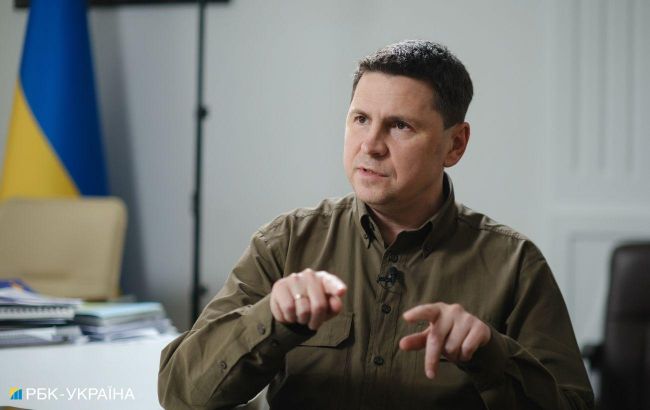Ukraine's accession to the EU: Three priority areas of accession negotiations
 Advisor to the Head of the Office of the President of Ukraine Mykhailo Podolyak (photo: RBC-Ukraine/Vitalii Nosach)
Advisor to the Head of the Office of the President of Ukraine Mykhailo Podolyak (photo: RBC-Ukraine/Vitalii Nosach)
The President's Office has identified three priority areas for the creation of a negotiation framework from the European Commission, according to the Advisor to the Head of the Office of the President of Ukraine Mykhailo Podolyak.
The first area he mentioned was deregulation, which means creating a different architecture of economic relations in Ukraine and reducing bureaucratic pressure on various economic sectors. According to Podolyak, this "will increase our sustainability, and then we will understand what we can compete in the European economic space."
Another component, according to the head of the Presidential Office, is the continuation of the justice sector reform. He clarified that this is not only anti-corruption but also the law enforcement sector and the judicial system in general.
The third component of the negotiation framework with the EU, according to Podolyak, is the reform of the army.
"We are no longer a Soviet army. We are now almost completely using the NATO standard of weapons and the NATO standard of management in the army. However, this still needs to be legally formalized and our army should be made an integral part of the common European army within the Euro-Atlantic community," said the advisor to the head of the Presidential Office.
Ukraine's negotiations on accession to the European Union
On November 8, the European Commission recommended to the European Council to start negotiations on Ukraine's accession to the European Union. EC President Ursula von der Leyen noted that Kyiv had implemented 90% of the reforms necessary to start negotiations.
At the same time, Hungary opposed Ukraine's membership in the EU, as it would allegedly bring war to the bloc. Prime Minister Viktor Orban said that Budapest was not against Ukraine's accession to the EU, but that the decision to start negotiations should be postponed for six months.
On December 14, a European Council summit was held in Brussels, during which the leaders of the EU member states approved the start of negotiations on Ukraine and Moldova's accession to the EU. During the voting, Hungarian Prime Minister Orban left the meeting room and did not block the European Council's decision. He was persuaded to do so by German Chancellor Olaf Scholz.
It is currently unknown when negotiations on Ukraine's accession to the EU will begin.
Hungary may block the talks, as they could allegedly cause "losses" to Budapest. Prime Minister Viktor Orban announced his intention to veto Ukraine's accession to the EU at a later stage of the process.
Read more about the historic EU summit in RBC-Ukraine's analytical report.

